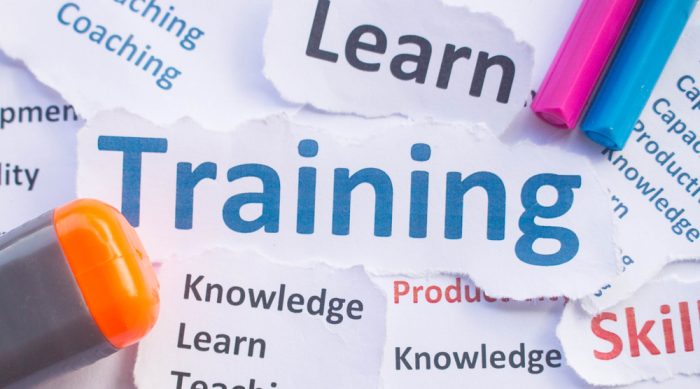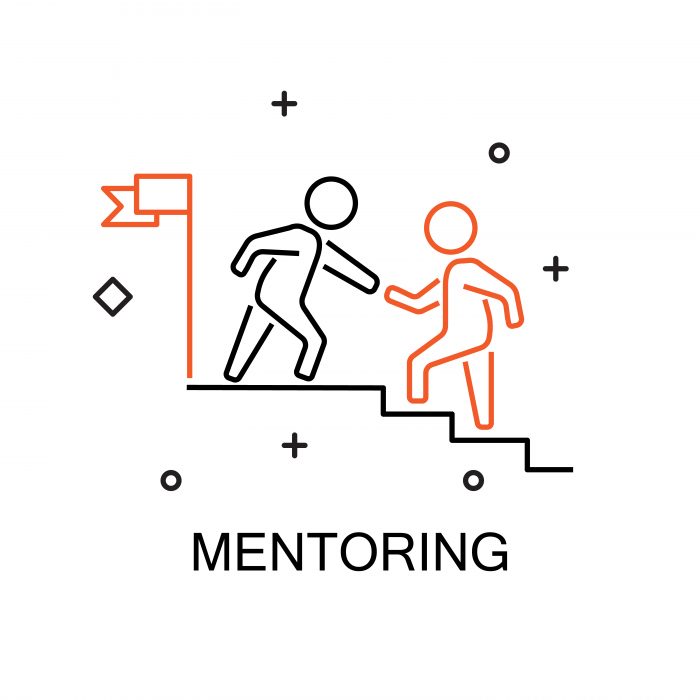Real estate mentoring can be a beneficial connection for both the mentor and mentee. The key is knowing how to get the most out of your time together.
Branding & Design
If you’ve had any success in your real estate career, chances are that you’ve gotten some help along the way. Real estate mentors provide an important transfer of knowledge within areas of expertise and between experienced agents with veteran agents.
A seasoned mentor is an invaluable tool for new and learning agents. Plus, mentoring is a great way to improve communication skills and train agents to work well on your team. In fact, 94% of agents said that mentorships were a demonstration of an organization’s commitment to their employees (brokers, take note).
When we speak about mentorship in this article, we are referring to real estate coaches and long-term mentors, a formal mentoring program or casual professional connection. A mentor relationship can include anything from a bi-weekly phone call to a committed program in which the mentee is completing a series of lessons and consistently implementing them into their business.
To be a great mentor or mentee, start by understanding what mentoring is and the many forms it can take.

Five Areas of Mentoring
Diversity
Diversity mentoring involves improving client and team relationships by gaining a deeper understanding of cultural and socioeconomic relations. In a real estate brokerage, this entails diminishing unconscious bias and developing an informed perspective before taking on a large range of clients.
Real estate professionals with diversity mentoring are able to develop a diverse and knowledgeable team of that appeals to several pools of clientele. Additionally, diverse real estate team makes your brokerage stand out from the local competition that are often not taking such advanced steps. In a diverse workplace and a work environment, employees can voice their concerns and find solutions through open and educated conversations.
Leadership Development
Real estate mentorship focus on leadership development can (at the least) increase employee retention and a loyal team. Encouraging leadership is a surefire way to make sure your staff will have what they need to excel and lower brokerage attrition costs in the future. Mentors also have the ability to deepen their leadership skills and help learning staff take on leadership roles sooner rather than later.
Team Collaboration
Mentorship focused on team collaboration will improve in-office systems, coherence in teams, as well as accountability in individual work.
Depending on your mentoring style and priorities collaborative mentorship can take on a variety of shapes and forms. For example, collaboration outside of the office can improve networking connections and community outreach to build mutually beneficial connections. While in-office mentoring circles help employees foster a sense of belonging and strengthen trust at work.
Knowledge Sharing
Knowledge sharing is about perfecting current skills and providing the training necessary to take advantage of growth opportunities when they present themselves. Mentees increase their industry knowledge to be able to perform more functions in the office.
Knowledge mentoring programs can go both ways, senior executive agent may have a lot teach to teach other agents about the business, while younger agents can update other agents on new tech solutions and vocabulary among younger generations.
Career Development
Career development mentoring makes it easier to scale your real estate businesses by developing long-term clear goals and mapping out the steps to achieve them. This style is often one-to-one mentorship with an experienced agent and a less experienced agent (new to the industry overall or to a specific branch of the real estate industry like commercial or vacation real estate).
Mentees are able to move out of stagnancy in their roles, while mentors form connections with a new generation of agents and create positive partnerships for the future. For example, your mentees have the potential to be great substitutes whenever you go on vacation and are unavailable to respond to client messages.
How to Gain the Most as a Mentee
Finding the right mentor is easier said than done. Even if you find a knowledgeable and generous mentor, you’ll need to be prepared to make the most out of the opportunity. It’s not as simple as listening to advice, but knowing what advice you need, how to implement it, and how to integrate your new skills into your day-to-day practice.
Look for a Mentor that You Admire Personally and Professionally
If you find it difficult to find a mentor that embodies your personal and professional principles, consider having more than one mentor you can turn to. It’s great to get a second opinion and expand your perspective in order to build your own unique solutions.
Start by searching within your professional networks online and in person. For example, search LinkedIn connections and mutual connections. Then, reach out with a short message about yourself, why you are interested in speaking to them and an offer to grab a coffee (if they are local).
It’s beneficial to search within your industry, however, successful entrepreneurs in similarly-structured, client-focused businesses can provide equally as much value and a fresh business perspective.
Be Clear About Your Needs
Your mentor may have ideas of what they needed when they were less experienced, but there’s no guarantee that you have the same interests and needs. Clearly communicate the goals you’re hoping to establish, the type of mentorship relationship you are expecting, and how often you and your mentor are available to connect.
Your mentor should not be the one pushing things along, you are the one who is principally gaining from this connection. That means that you should be the one taking responsibility for the quality of your learning experience.
Ask the Right Questions
If you’ve gone as far as to request that an experienced professional development dedicate time to your career growth, you need to show how hungry you are to learn. Your mentoring relationship is one of the few in your life that is primarily focused on you, so take this opportunity to ask the right, thought-provoking questions.
For example, What Industry Technology Are You Using? What Mistakes Did You Make as a New Agent?

Build a Solid Foundation
Once you fully comprehend the basics, everything else (like marketing or finding your niche) will fall into place. The process your mentor follows throughout their interactions with clients, from client acquisition, lead generation, follow-up, open houses, etc. are basic skills that most real estate mentors can help with. Before you can decide on your own business style and principles, you need to understand the foundation of each responsibility.
Use Your Time Wisely
Look for opportunities to meet with your mentor and stay reasonably flexible to their needs. Finish every mentoring session with a follow-up and ask to schedule the next meeting. This will keep the momentum going and show your mentor that you’re serious about your progress.
Your mentoring relationship is just like any other professional relationship and should be treated as such. You always want to respect your colleagues’ time and optimize however much time you have together. If you show up to meetings with a clear agenda of what you’d both like to cover, you are more likely to get the most out of your time together.
Accept and Apply Constructive Feedback
Feedback is a gift – as long as you can absorb it and apply it to your growth. Your mentor doesn’t expect you to be a genius, however they do appreciate your honestly and openness to learning. Real estate mentors would be doing you a disservice if they weren’t being honest about where you could improve. A successful mentorship starts with the trust and humility to exchange information and knowledge.
How to Be an Excellent Mentor
Being asked to be a mentor is a milestone in your career. Real estate mentorship is a demonstration of your expertise and the high level of respect you’ve gained in the real estate industry.
As a mentor, you steer the direction and success of your mentor and mentee relationship. Think about what you wish you had known when you were in your mentee’s place, while staying open to the possibilities of continuous learning in reverse mentoring. This is your opportunity to give back to the industry that has allowed you to have a life that you love and continue the legacy of a business you are proud of.
Sharpen Your Listening Skills
Be sure to listen when your mentee talks about challenges, fears and goals. Some mentees may be too shy to raise questions or issues. As excited as you are to release years of real estate expertise on your new mentee, make sure that you are listening carefully to their desires.
Always Be Honest
You can’t be a good mentor if you are afraid to point out mistakes. Your mentee is not going to get everything right on the first step, and that’s okay.
We all have different strengths and backgrounds, just because something was easy for you to pick up, doesn’t mean that it will be as easy for your mentee. Patience and focus on the end goal are big here. If the personal process you used isn’t working, work with your mentee to change it. Communicate that you also make mistakes and give them the opportunity and necessary advice or tools to fix it.
Get ready to provide a little tough love if your mentee needs it.

Get Clear on Expectations
Successful mentorships are a long-term relationship that is based on trust. Ask your mentee why they decided to reach out to you and which of your skills they’d like to acquire for themselves. Some mentees may expect detailed career advice, while others simply want a great listener and someone to call during confusing moments.
Talk to your mentee about his or her strengths and areas where improvement is needed. You should also ask for feedback to help you hone your approach.
Remember, however, that it is the responsibility of the mentee to take notes, ask questions, speak up when they’re lost. You are meant to be guiding them, not doing all the work for them.
Stay Educated in Your Field
Even the most experienced real estate professionals need a coach. There’s always something more to learn or new strategies that can be implemented to further improve your real estate business. Personal growth has no limit, as soon as we assume that there’s nothing more for us to learn is the moment our success plateaus and competitors have an open opportunity to step in.
Get To Know Your Mentee
Don’t jump in assuming that you know exactly what your mentee’s goals are. They may have specific struggles and goals that they would appreciate your help with. Additionally, they may desire a different career path than yours, although they admire the success you’ve managed to achieve.
Encourage them to find their own solutions with your advice and support.
Check In
The last step on both the mentor and mentee’s side is to check in once in a while to make sure you’re on the right track. You may choose to check in monthly and every few months – that part is up to you. What matter is that both the mentor and the mentee feel that they are making progress and moving in the right direction.
Wrapping Up…
A mentorship is like any other professional relationship; it starts with professionalism and mutual respect. However, to make the most out of a mentorship for both parties, it’s crucial to be clear on expectations, be honest, and stay on track.
Several mentees and mentors end their time together without feeling completely fulfilled in the expectations. With these tips, that won’t be you.
If you want more in-depth articles, tactics, strategies, and advice – subscribe to our newsletter, The Spark. And if you want to dominate your hyperlocal real estate market, check out AgentFire’s Web Designs, #1 rated for several years in a row.







